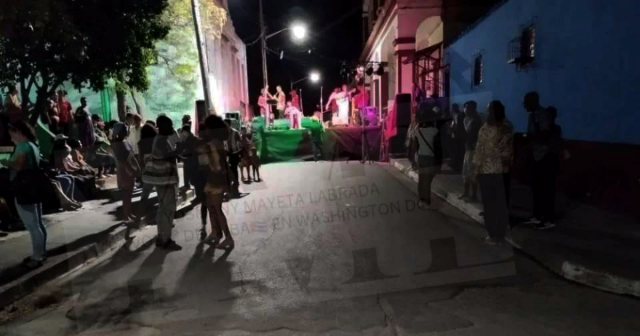The ruler Miguel Díaz-Canel tried to downplay last Sunday's protests in several regions of the island by comparing them with those of other nations, and asked "why do they matter so much?"
In an incongruous analysis Before the press accredited on the island and representatives of several countries attending the III Patria International Colloquium taking place in Havana, the president asked: "Tell me if worse things were not happening in other parts of the world on Sunday, why Cuba are so unique, why are they so interesting?"
After blaming the United States for the crisis on the island, he added that the demonstrations on the island "were resolved talking to the population by their leaders. In the world, how are they resolved? With repression and police brutality," he said, referring to protests in past years in the United States and Chile and denying the imprisonment of several people who were arrested for protesting in Santiago de Cuba.
"So those things are not what is in the media narrative," he commented. Diaz-Canel, as if the protests in those countries had not made it into the international press.
Also in an interview with NBC News, amid ongoing protests over shortages in Cuba, accused the United States of "interventionist" tactics and showing "contempt" for the Cuban revolution.
He also said the U.S. embargo was the root cause of severe food and energy shortages on the island, prompting widespread protests over the weekend by Cubans who openly defied the regime, with demands for "electricity," "food" and "freedom".
On Monday, the president concluded the protests that had their origin in a district of Santiago, whose neighbors came out in their hundreds to express their discontent in the streets.
"The troupe of the infamous wanted to go out yesterday to dance with the pain of the Cubans. Mediocre politicians and terrorists in networks lined up from South Florida to heat up the streets of Cuba with interventionist messages and calls for chaos. They stayed with the desire," he said on his social networks.
Hours after the outbreak, Díaz-Canel declared that "several people have expressed their dissatisfaction with the situation of the electrical service and the distribution of food. This context is being attempted to be taken advantage of by the enemies of the Revolution, for destabilizing purposes."
However, despite the government's pressure to consider the sources of protest in Cuba extinct, several reports on social networks indicated that protest demonstrations remained active in Santiago de Cuba to demand that the Cubans detained over the weekend be released.
For his part, journalist Mario J. Pentón also published a video of the current protests in El Cobre, Santiago de Cuba. "There are hundreds of people demanding the release of detainees on Sunday in the demonstrations," he reiterated.
The protests in Santiago de Cuba began on Sunday afternoon, on the central Carretera del Morro Avenue and 9th Street in Veguita de Galo. Later, the disturbances spread to the town of El Cobre, where the Sanctuary of the Virgin of Charity, Patroness of Cuba, is located.
What do you think?
COMMENTFiled in:
